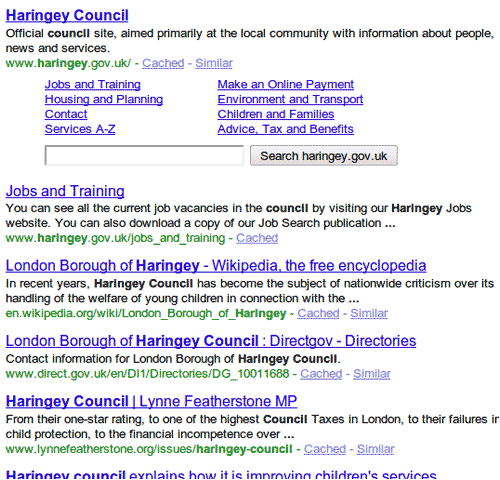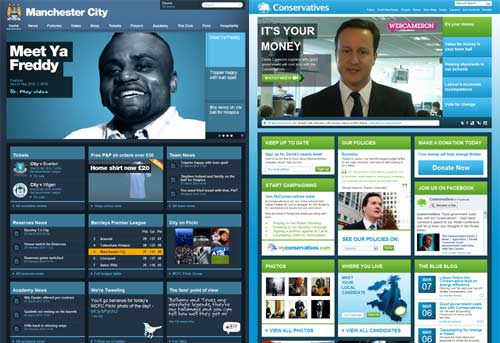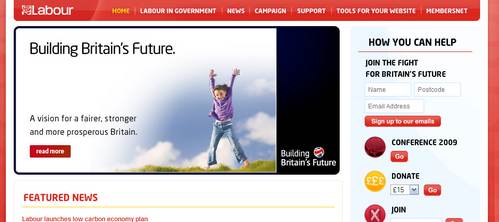
Gordon Brown’s speech, describing a vision of Britain’s digital future, is stirring stuff, with its pledges to make Britain a world leader in terms of digital jobs, public service delivery and ‘the new politics’.
The announcements and commitments came thick and fast – from the £30m to create an Institute of Web Science, to be headed by Tim Berners-Lee and Nigel Shadbolt, to confirmation of the release of ‘a substantial package of information held by Ordnance Survey … without restrictions on reuse’, to a ‘Domesday Book for the 21st century’ listing all non-personal datasets held by government and arms-length bodies, to an iPhone app for Number10, to an API on Directgov content ‘by the end of May’.
And then there’s MyGov – ‘a radical new model making interaction with government as easy as internet banking or online shopping.’ On the face of it, this seems – finally – like recognition that citizens’ expectations have jumped ahead of government’s delivery in the last decade. There wasn’t much detail in the speech – but it sounds to me like the first hint at Vendor Relationship Management, where the citizen shares his/her data up to suppliers. That’s certainly where the Times seemed to be pointing on Saturday, when it described the creation of a ‘paperless state’:
The aim is that within a year, everybody in the country should have a personalised website through which they would be able to find out about local services and do business with the Government. A unique identifier will allow citizens to apply for a place for their child at school, book a doctor’s appointment, claim benefits, get a new passport, pay council tax or register a car from their computer at home. … Over the next three years, the secure site will be expanded to allow people to interact with their children’s teachers or ask medical advice from their doctor through a government version of Facebook.
As I’ve written here before, I’m convinced this has to happen at some point. We build up personal profiles on Facebook, and allow Amazon and Tesco to analyse our purchasing habits – in return for much improved service. I just don’t think it’s sustainable on any level for government to continue to demand that we fill in lengthy forms, whether on paper or online, to get what we’re due.
But of course, that’s a huge government IT project, isn’t it? And by definition, that’s doomed? Well, there’s a blink-and-you’ll-miss-it line which suggests things might be changing:
This does not require large-scale government IT Infrastructure; the ‘open source’ technology that will make it happen is freely available. All that is required is the will and willingness of the centre to give up control.
Blimey: recognition that open source is ready to deliver the most visionary of government policy.
And with my WordPress hat on – do I ever take it off? – I can’t help smiling at his pledge that ‘no new [government] website will be allowed unless it allows feedback and engagement with citizens themselves.’
Of course, the speech has to be seen in context. Without ever mentioning the Tories, the speech was quite unashamedly party political in places: portraying the differing views of broadband expansion, or trying to match or trump Tory pledges on data transparency. It was also the speech of a Prime Minister staring at a huge public debt problem: and with neither tax rises nor spending cuts being palatable, that really only leaves technology-driven efficiency savings.
And it’s the context that’s stopping me getting too excited about it all. We’re probably a fortnight away from government pulling down the shutters for a month. In six weeks, Brown may or may not be Prime Minister, and may or may not be in a position to deliver on these promises.
Comparisons with the Tories’ technology manifesto are inevitable. In this speech, Brown blended small-scale but symbolic measures, like a Directgov API within weeks, with big-picture principles such as VRM. It’s both shorter- and longer-term than the Conservative document – attempting, perhaps, to outflank Cameron, Maude, Hunt et al on both sides at once.
But whilst they may differ on certain matters of implementation, both are heading – rushing actually – in the same basic direction. On the face of it, no matter who wins, we can’t lose.







